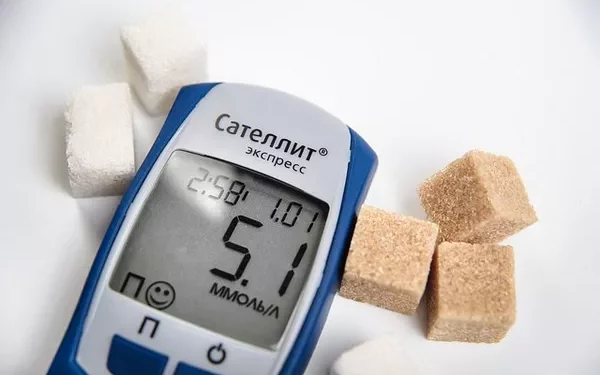Hypoglycemia, or low blood sugar, is a condition characterized by abnormally low levels of glucose in the bloodstream. It can cause a range of symptoms, including dizziness, confusion, shakiness, and, in severe cases, loss of consciousness. Hypoglycemia can occur in individuals with diabetes due to various factors, such as excessive insulin, missed meals, or increased physical activity. However, it can also affect people without diabetes under certain conditions. This article explores the prevalence of hypoglycemia across different age groups, identifying when it is most common and discussing the factors contributing to its occurrence.
Understanding Hypoglycemia
Hypoglycemia occurs when blood glucose levels drop below 70 mg/dL. The condition can manifest in several ways, from mild symptoms like irritability and weakness to severe episodes that require immediate medical intervention. The management of hypoglycemia typically involves prompt treatment with glucose or carbohydrate-rich foods to restore normal blood sugar levels.
Hypoglycemia Across the Lifespan
Infants and Young Children
Prevalence and Causes
Hypoglycemia is relatively common in infants, particularly those who are premature or have low birth weight. The newborn’s ability to regulate blood glucose is still developing, making them more susceptible to fluctuations in blood sugar levels. Common causes of hypoglycemia in infants include:
Inadequate Feeding: Newborns with feeding difficulties or those who are not breastfeeding adequately are at higher risk.
Birth Complications: Conditions such as respiratory distress syndrome or asphyxia during birth can impact glucose metabolism.
Congenital Metabolic Disorders: Certain genetic conditions can affect the body’s ability to produce or regulate glucose.
Symptoms and Management
In infants, symptoms of hypoglycemia may be less obvious and can include lethargy, irritability, and poor feeding. Prompt diagnosis and treatment are essential to prevent long-term complications. Management often involves administering glucose or intravenous fluids under medical supervision.
Children and Adolescents
Prevalence and Causes
In older children and adolescents, hypoglycemia is often associated with diabetes management. Those with type 1 diabetes are particularly prone to episodes of low blood sugar due to insulin therapy, dietary changes, or physical activity. Key factors contributing to hypoglycemia in this age group include:
Insulin Overdose: Administering too much insulin or taking insulin without sufficient carbohydrate intake can lead to low blood sugar.
Physical Activity: Increased physical activity, especially without adequate carbohydrate intake, can cause hypoglycemia.
Dietary Changes: Skipping meals or not consuming enough carbohydrates can result in hypoglycemic episodes.
Symptoms and Management
Children and adolescents may experience symptoms such as irritability, confusion, and difficulty concentrating. Treatment involves quick administration of glucose or carbohydrate-rich snacks. It is crucial for caregivers and school staff to be aware of the signs of hypoglycemia and how to respond appropriately.
Adults
Prevalence and Causes
In adults, hypoglycemia is commonly seen in individuals with diabetes, particularly those using insulin or certain oral medications that increase insulin secretion. Factors contributing to hypoglycemia in adults include:
Medication Errors: Taking too much insulin or other glucose-lowering medications can cause low blood sugar.
Dietary Issues: Skipping meals or not eating enough carbohydrates can result in hypoglycemia.
Alcohol Consumption: Drinking alcohol, especially on an empty stomach, can lead to low blood sugar levels.
Physical Activity: Intense or prolonged exercise without adequate carbohydrate intake can lead to hypoglycemia.
Symptoms and Management
Adults with hypoglycemia may experience symptoms such as sweating, dizziness, and shaking. Management typically involves consuming fast-acting carbohydrates and adjusting medication or dietary habits. Regular monitoring of blood glucose levels is essential for preventing hypoglycemic episodes.
Older Adults
Prevalence and Causes
Older adults are also at risk of hypoglycemia, often due to a combination of diabetes, polypharmacy, and age-related physiological changes. Contributing factors include:
Medication Interactions: The use of multiple medications can increase the risk of drug interactions that may lead to hypoglycemia.
Dietary Challenges: Changes in appetite, difficulty chewing, or poor nutrition can affect blood glucose levels.
Kidney Function: Impaired kidney function can affect the metabolism and clearance of glucose-lowering medications, increasing the risk of hypoglycemia.
Cognitive Decline: Reduced cognitive function can impact the ability to recognize and manage hypoglycemia effectively.
Symptoms and Management
In older adults, symptoms may be subtle or mistaken for other conditions. Symptoms such as confusion, fatigue, or sudden changes in behavior may indicate hypoglycemia. Management involves careful monitoring of blood glucose levels, adjusting medications, and ensuring proper nutrition.
Factors Influencing Age-Related Differences in Hypoglycemia
Metabolic Differences
Metabolic differences at various ages can influence the risk and presentation of hypoglycemia. For instance, infants have different glucose metabolism compared to adults, and older adults may experience altered glucose regulation due to age-related changes in organ function and metabolism.
Medical Conditions
Coexisting medical conditions can affect the risk of hypoglycemia across different age groups. For example, infants with congenital metabolic disorders are at higher risk, while older adults with kidney disease may experience more frequent hypoglycemic episodes due to impaired medication clearance.
Treatment Approaches
Treatment approaches for hypoglycemia can vary by age. In infants, immediate medical intervention is often required, while children and adolescents may benefit from education and lifestyle modifications. Adults and older adults may require adjustments to their diabetes management plans and close monitoring to prevent hypoglycemia.
Preventing Hypoglycemia
General Strategies
Regardless of age, preventing hypoglycemia involves several key strategies:
Regular Monitoring: Consistent blood glucose monitoring helps detect early signs of hypoglycemia and adjust treatment as needed.
Education: Educating individuals and caregivers about recognizing symptoms and managing hypoglycemia is crucial for effective prevention.
Dietary Management: Consuming balanced meals and snacks that include carbohydrates can help maintain stable blood sugar levels.
Medication Adherence: Following prescribed medication regimens and avoiding errors in insulin administration or glucose-lowering medications is essential.
Age-Specific Considerations
Infants: Ensure adequate feeding and monitor for signs of hypoglycemia. Parents and caregivers should be trained to recognize and respond to low blood sugar.
Children and Adolescents: Educate on managing insulin therapy, dietary needs, and physical activity. Schools and caregivers should be informed about managing hypoglycemia.
Adults: Regularly review and adjust diabetes management plans, including medication and lifestyle changes. Be mindful of alcohol consumption and its effects on blood sugar.
Older Adults: Monitor for signs of hypoglycemia and adjust medications as needed. Address dietary challenges and ensure appropriate support for managing diabetes.
When to Seek Medical Help
Regardless of age, seeking medical help is essential if hypoglycemia is persistent, severe, or unresponsive to initial treatment measures. Medical attention is required if:
Severe Symptoms: Symptoms such as loss of consciousness or seizures require immediate medical intervention.
Persistent Hypoglycemia: If blood glucose levels remain low despite treatment, consult a healthcare provider.
Underlying Conditions: Individuals with additional health conditions or those experiencing frequent hypoglycemic episodes should seek medical advice.
See also: What’s Hyperinsulinemic Hypoglycemia
Conclusion
Hypoglycemia is a condition that can affect individuals at any age, with varying prevalence and causes depending on the life stage. Infants, children, adolescents, adults, and older adults each face unique challenges and risks related to low blood sugar. Effective management involves a combination of regular monitoring, dietary adjustments, medication management, and education.
By understanding the factors contributing to hypoglycemia at different ages and implementing appropriate preventive measures, individuals can better manage their blood glucose levels and reduce the risk of complications associated with low blood sugar. Regular consultation with healthcare providers and adherence to personalized treatment plans are essential for maintaining optimal health and preventing hypoglycemia.
Related topics:



























